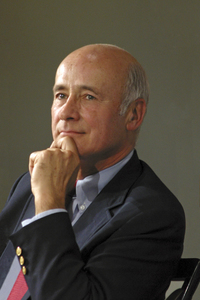
Joseph Nye, Harvard University International Relations professor and coiner of the term “soft power,” has an interesting article on RealClearWorld asking “Will the U.S.-Japan Alliance Survive?”
Nye addresses various challenges to the U.S.-Japan alliance and makes a compelling case for its enduring importance.
The entire article is worth a read, but the part I find most interesting is Nye’s discussion of transnational threats – and Japan’s relative strengths in these areas. Nye says that
Although some Japanese complain about the unequal nature of the alliance’s security components, owing to the limits that Japan has accepted on the use of force, in these new areas, Japan is a stronger partner. Japan’s overseas development assistance in places ranging from Africa to Afghanistan, its participation in global health projects, its support of the United Nations, its naval participation in anti-piracy operations, and its research and development on energy efficiency place it at the forefront in dealing with the new transnational challenges.
This point hits the mark, and highlights the possibility that cooperation on transnational threats like global poverty and the need for new sources of energy may provide the best opportunity for the world’s major stakeholders to develop the institutions and arrangements necessary to achieve a new power equilibrium in today’s increasingly nonpolar world.
Formidable military power or not, Japan has a lot to offer on these kinds of “soft power” issues.
— Ben Katcher


9 comments on “Joseph Nye on the U.S.-Japan Alliance and Transnational Threats”